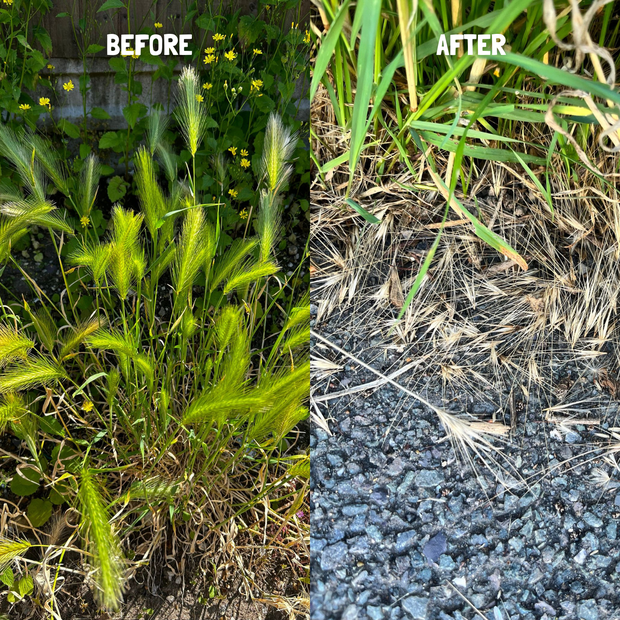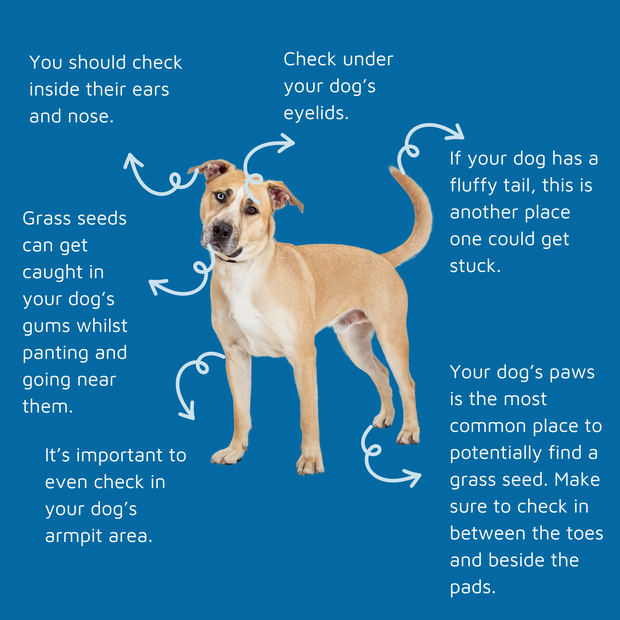Grass seeds and pets
This summer, make sure to keep an eye out for grass seeds, also known as foxtails, as they can be a danger to your pets.
It’s important to familiarise yourself with what they look like, so you can avoid them as best as you can when out on a dog walk. In fact, they can cause harm to any animal, so it’s worth keeping an eye on your cats too.
A foxtail is a type of weed that generally grows in fields and meadows but can also appear in your front or back garden. A grass seed is a small pointy seed that is attached to the top of grass stems, but only become a danger once the plant matures and disperses its seeds.
The image on the left is a young foxtail, as a warning for what is to come. Once it matures it disperses its seeds, ready to colonise, and ends up looking like the photo on the right. This is when they become dangerous, as they spread very quickly.
Flourishing in the summer months, these annoying weeds are designed to burrow into the ground, which could end up being your pet’s skin. When the weather is warm, the foxtail dries out and hitches a ride on anything that passes by, including us.
As soon as you get home from a walk, it’s important to check for grass seeds to see if any have become attached to your dog’s fur, or even your clothing. You wouldn’t want to bring any into your home and then risk them re-attaching to your pet. Here are the areas you should ideally focus on when checking your pet over.
If you do find a grass seed, it needs to be removed safely and quickly to prevent it from working it’s way into the skin. Here is what you should look out for:
- Excessive licking
- Head shaking
- Pawing at the face
- Limping
- Red lumps
- Draining tracts
- Inflammation
- Lethargy
If you are ever concerned that your pet has a grass seed intact, please contact your vet immediately before it progresses into something much worse.
Do you enjoy reading our content and advice topics? Your kind donation can help us to continue our work to bring you more information and advice on pet care. You can donate here, thank you.


